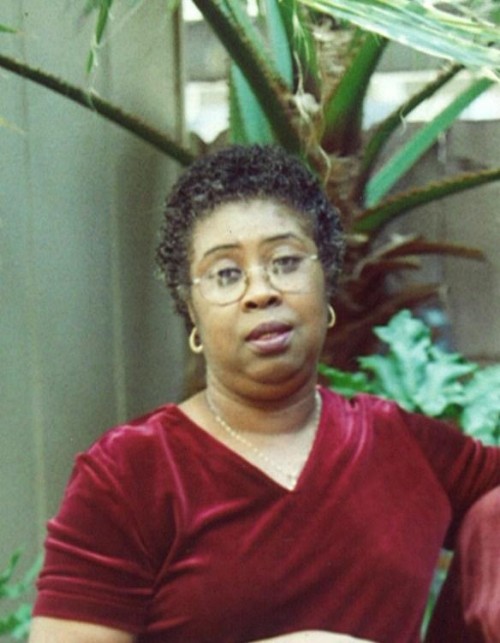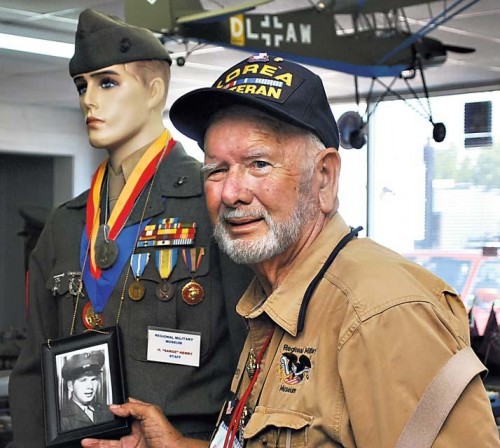
Ethel Hawthorne Watkins
October 7, 2011Grand Reveil Acadien!
October 11, 2011At 17 years old and 135 pounds, Hymel ‘Sarge’ Henry enlisted in the United States Marine Corps during the Korean War.
His older brother was active in the Navy, and had been corresponding via mail from his base in the northern United States. Henry, who was signed up for the Navy Reserves, went to New Orleans to enlist.
“But they couldn’t find my records,” Henry, now 77, said. “So I looked across the hall, and it says United States Marine recruiter. I walked across the hall and said, ‘I want to join the Marines.'”
Like many veterans who served before and after him, Henry remembers multiple unpleasant moments during his service. He said he doesn’t know the fate of the 50 percent of his unit that was lost during his time in Korea, because, where he was stationed, the wounded were sent to the hospital and never returned.
After enlisting, Henry was sent to Camp Pendleton, near San Diego, for training. While there, he was able to spend Christmas on an aircraft carrier that had just returned from a tour in Korea. Henry’s brother was on the ship.
His brother would continue on in his naval capacity, and it wasn’t long before Henry felt he joined the wrong branch of the military. “Dinnertime chow (on the aircraft carrier) had cigars, chewing tobacco, cigarettes, turkey, beef, ground meat patties, all kind of vegetables,” he said. “I said, ‘Man, I should have joined the Navy instead of the Marine Corps.'”
Henry didn’t have too much time to miss his family. He was soon shipped out aboard the USS General W.H. Gordon. Although troops on the vessel suspected where they were going, they weren’t actually told until they were well on their way.
After stopping to pick up Army soldiers and other Marines in Kobe, Japan, the Gordon headed to South Korea, landing in the northwestern city of Inchon, a key American port that had previously facilitated the United Nation’s recapture of Seoul.
“I think it was a day after I landed at Inchon,” Henry said. “They got me and four or five other Marines, ‘You, you and you and you get on that truck,’ and that truck brought me to an artillery unit. Never seen a 155 (caliber) gun in my life, but I learned fast.”
The guns, which fired at a range between 10 and 12 miles, were in the center of pits walled with sandbags. Ten men manned each gun.
Henry was originally stationed on Gun 2, but a month or two after joining the unit, he was asked to move to Gun 3, which was a man short of a full squad.
“About a week later, Gun 2 got hit with every man,” Henry said. “All 10 of them got hit. … Did any die? I don’t know. They brought them to a hospital ship, but they never came back.”
The attack happened at about 2 a.m. Henry was ordered to hold a light for the incoming medical evacuation helicopter while the enemy continued firing. He was struck in the thumb by a piece of shrapnel from what he said was Chinese artillery.
He continued to serve in a dangerous environment, and nearly lost his life in another close call. While he was exiting a bunker, Henry heard a whistling sound. A 76 mm shell hit nearby and became lodged 2 feet beneath the dampened earth. It did not explode on impact.
“If it would have been hard ground, I may not be talking to you today,” he said. “It really shook me up.”
Not every close call was a threat to Henry’s livelihood. He remembers an instance when his unit could have ended American lives.
“We had a battery six-round and we were firing at tanks,” Henry said. “Halfway through, headquarters (says), ‘Cease fire! Cease fire!’ and we stopped firing. Normally when you fire at a target, they would tell you what you hit. …Anyway, they didn’t tell us nothing. …Was it our tanks? Had a feeling it was.”
After the war, Henry remained in the Marines and was sent to Camp Lejeune, N.C. He left the Marines in 1955 but remained in the Reserve for another five years.
“The North Koreans were very cruel,” Henry said, remembering the constant warfare around the 38th parallel. “We had a pact, my unit: We weren’t going to get captured. We were going to die fighting.”
Special thanks to the Regional Military Museum of Houma, the Ellender Memorial Library Archives and Special Collections at Nicholls State University and Neil Guilbeau for compiling the information.
If you are a military veteran with a story to tell, contact Eric Besson at (985) 876-3008, extension 27, or email eric@tri-parishtimes.com.
Hymel ‘Sarge’ Henry stands near a mannequin that wears his uniform from the Korean War. Henry served in the Marine Corps, and recalled several dangerous moments during his time abroad. ERIC BESSON










